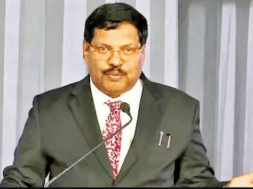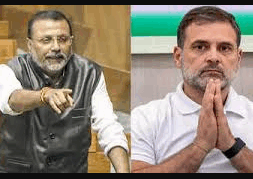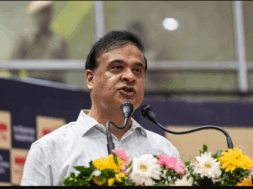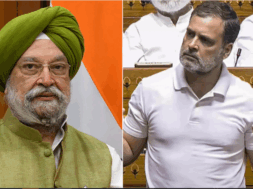
Roving Periscope: India can do more to bridge a trust deficit in the Middle East
Virendra Pandit
New Delhi: Days after RSS chief Mohan Bhagwat’s observation, that there is no need to look for a Shivaling under every mosque, India may face a trust deficit in the Middle East where the Muslim countries have strongly protested against two BJP leaders’ controversial remarks against Prophet Muhammad.
Although the ruling party has suspended one and expelled the other leader, the goodwill India has earned since 2014 during the government of Prime Minister Narendra Modi may diminish in the Middle East unless it takes corrective and immediate steps to control the damage.
While the Centre, and the BJP governments in various states, have tried to appear even-handed in communal matters, some “fringe elements” in the ruling party and its supporters may have gone into overdrive. They overstepped their Laxman Rekha in the last few weeks, which Bhagwat sensed and warned against.
In the prevailing competitive and ‘autonomous’ Hinduness ecosystem, even the Congress-supported Hindu saints—like Jagadguru Shankaracharya Swami Swaroopanand Saraswati and his supporters—also started fishing in the troubled waters of the Gyanvapi controversy, if only to embarrass the BJP.
Although India rejected a statement made by the 57-member-nations’ Organisation of Islamic Cooperation (OIC), headquartered in Saudi Arabia, as “unwarranted and narrow-minded”, it will have to handle the issue immediately and sensitively. Pakistan and Bangladesh are already seeing an economic opportunity in India’s political discomfiture.
According to the media reports, following a call for a boycott, superstores in Saudi Arabia, Kuwait, and Bahrain removed Indian products to register their protests. But India has more reasons to act fast and now.
For, the Indian economy’s dependence on the Middle East is more than many believe.
Consider these:
- The Middle East employs about 15 million Indians; if it forces them to return, India may face a huge unemployment problem;
- India imports over 75 percent of its oil needs from the Middle East; any ban on petroleum exports to India may plunge the country into an energy crisis;
- Since 2019, the NRIs remitted over USD 250 billion (Rs. 19 lakh crore), which is more than the Government of India’s revenues for a full year. In 2021, they remitted USD 87 billion, which was 40 percent more than the income tax collected;
- Of them, the Indian NRIs working in the Middle East remitted USD 42 billion (Rs. 3 lakh crore) which is two times the taxes collected by Uttar Pradesh and Bihar (Rs. 1.5 lakh crore).
- Indian exports to four major Islamic nations are over US 40 billion. If they cancel the orders this year….?
- India’s overall exports of nearly USD 400 billion may also be dented and so could the FDI worth USD 82 billion, particularly after the US Department of State questioned India on religious matters.
The Middle East has flagged these issues in the last couple of days.
Joining Qatar, Iran, and Kuwait on Monday, Saudi Arabia also condemned the controversial remarks made by the BJP leaders, and called for “respect for beliefs and religions.”
The media reported on Sunday that the Gulf nations had summoned Indian Ambassadors to strongly protest against the controversial remarks made by BJP spokesperson Nupur Sharma and Naveen Jindal, who headed the party’s Delhi unit’s media department—the former was suspended from the post, and the latter was expelled from the party.
The Indian Ambassador in Qatar said the controversial tweets do not, in any manner, reflect the views of the Government of India. “These are the views of fringe elements.”
Amid demonstrations by Muslim groups, the BJP, in a statement, asserted that it respects all religions and strongly denounces insults of any religious personality.
Incidentally, Vice President M Venkaiah Naidu was on an official visit to Qatar when the controversy erupted.
In a statement, the Ministry of External Affairs reiterated its “permanent rejection of prejudice against the symbols of the Islamic religion.” It also rejected anything that gives rise to prejudice against “all religious figures and symbols.”
On Monday, India slammed the General Secretariat of the OIC’s comments over Sharma’s remarks and said, “The Government of India categorically rejects OIC Secretariat’s unwarranted and narrow-minded comments.”
Hitting back. the Ministry of External Affairs said, “It is regrettable that OIC Secretariat has yet again chosen to make motivated, misleading, and mischievous comments. This only exposes its divisive agenda being pursued at the behest of vested interests,” hinting at Pakistan trying to benefit from the controversy.














